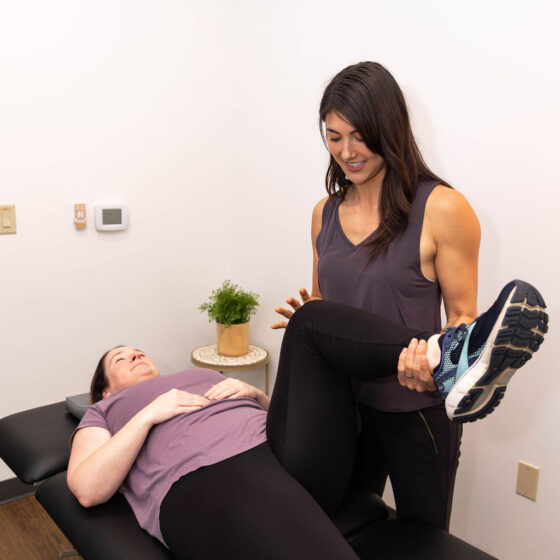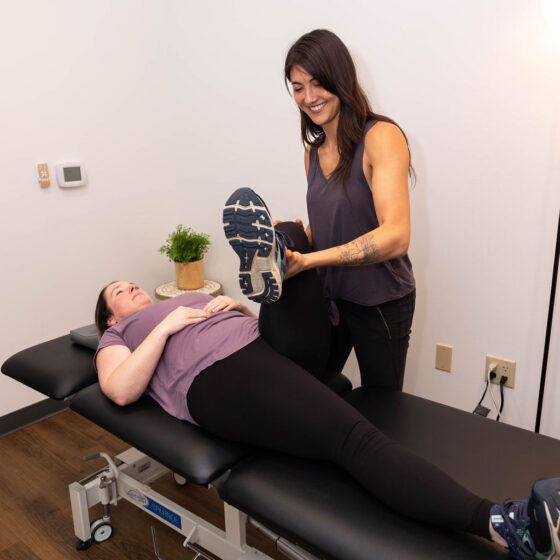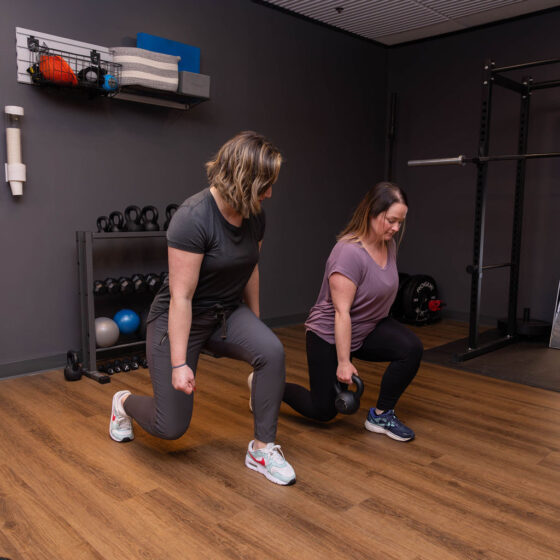Suffering from endometriosis?
We empower individuals to gain control of their endometriosis and pelvic pain through our holistic and integrative approach. Work with one of our endometriosis specialists for lasting results

Our endometriosis specialists empower individuals to gain control of their endometriosis and pelvic pain through our holistic and integrative approach

Are you experiencing unexplained back, hip, or sacral pain? Do you feel gaslit by healthcare professionals because of unexplained symptoms? Are you frustrated with the lack of information on endometriosis? Are you seeking relief without relying on medications?
It can be incredibly frustrating to deal with the pain and infertility that can occur due to endometriosis, especially with the lack of information available. It is estimated that about 10% of individuals with vaginas have endometriosis, but many may be under-diagnosed.
Unfortunately our and many other healthcare systems have not prioritized research or education on endometriosis. But there is a lot that can be done to help you reduce your symptoms.
We are a trauma-informed clinic. This means provide a judgement-free environment where we listen, provide guidance, and create a safe space for you to understand how to move your body by working with one of our endometriosis specialists.
of vagina owners in the U.S.
are affected with one or more pelvic floor disorders.
Of vagina owners
will experience pain during sex at some point in their lifetime.
of vagina owners in the u.s.
have endometriosis.
What is endometriosis?
Endometriosis occurs when tissue similar to the lining of the uterus, called the endometrium, grows outside of the uterus and attaches to organs such as the ovaries, fallopian tubes, bladder, and other organs. We now know that it’s a disease that begins in utero and isn’t always linked to menstruation, as men can have it too.
It can also attach to the rectum, causing symptoms such as anal pain, constipation, or diarrhea during menstruation.
Endometriosis has been found on the lungs, diaphragm and brain.
It is important, if you are considering surgery, to also consider physical therapy. Excision is the gold standard; however, it does not address the tension around the pelvic or affected areas, which can also contribute to the pain. The endometriosis summit is a great resource for ongoing updates on endometriosis research.



Feel free to contact us with any questions or to schedule a complimentary call to learn more.
Commonly asked questions
Below are some of the most frequent questions we get, but feel free to call us if you have any others.
What are the signs you may have endometriosis?
- Increased pain on or off your period (pelvic pain: anal, vaginal, pelvic, hip, low back and abdominal pain
- Pain with penetrative sex (especially closer to or on your period)
- Heavy bleeding during your period (more than 1 super tampon every 2 hours)
- Abdominal/pelvic bloating especially around your period
- Constipation or diarrhea during your period
- Infertility (unable to get pregnant after 12 consecutive months of regular and unprotected penetrative sex, or over 6 months >35 y/o)
- Fatigue
- Mood changes
How is it diagnosed?
Unfortunately the gold standard is laparoscopic surgery (a thin tube with a camera placed intra-abdominally) to assess for adhesions, but most people can be treated for symptoms without it.
It is important to note that ablation and hysterectomies do not treat the cause. Excision is often the gold standard if you choose to go the surgical route, as the lesions need to be tested and removed from the root for long-term relief.
However, many people can do well with lifestyle changes such as blood sugar management, nervous system regulation, pelvic floor mobility, pelvic organ mobility (bladder, uterus, etc.) and more.
Why does endometriosis cause infertility?
The scarring that occurs from endometriosis can block the fallopian tubes, limiting the ability for the egg to travel to meet the sperm. Additionally, endometrial tissue on the ovaries can reduce blood supply and affect the quality of the egg.

How can we treat it?
Below are just a few approaches to managing endometriosis.
1. Reducing pelvic floor tension:
Pelvic floor tension can increase pelvic pain and pressure during and after menstruation
2. Understanding insulin resistance:
Insulin resistance can contribute to increased endometriosis pain.
3. Understanding diet changes:
Individualized diet changes can help regulate blood sugar and reduce symptoms.
4. Strength training:
Strength training can help stabilize blood sugar levels by using glucose for energy.
5. Pelvic mobility:
Addressing hip, thoracic, and lumbar mobility through manual therapy and exercises can reduce tension and pain.
6. Cycle tracking:
Understanding how your menstrual cycle relates to your symptoms can provide insights into managing pain. This will also help with fertility and understanding when ovulation is occurring.
7. Nervous system regulation:
Regulating stress levels can help control blood glucose and reduce overall pain.
8. Abdominal mobility:
Improving intra-abdominal mobility can reduce tension in abdominal muscles and scar tissue restrictions.
9. Vaginal pH:
Maintaining a vaginal pH of 3.5-4.0 is crucial for vaginal health. An imbalance can disrupt the microbiome, affecting individuals with endometriosis. Proper pH levels may reduce discomfort and inflammation associated with the condition.
Feel free to contact us with any questions or to schedule a complimentary call to learn more.
Our location
2499 S Capital of Texas Hwy, Building A, Suite 101, Austin, TX 78746
Send Us A Message

